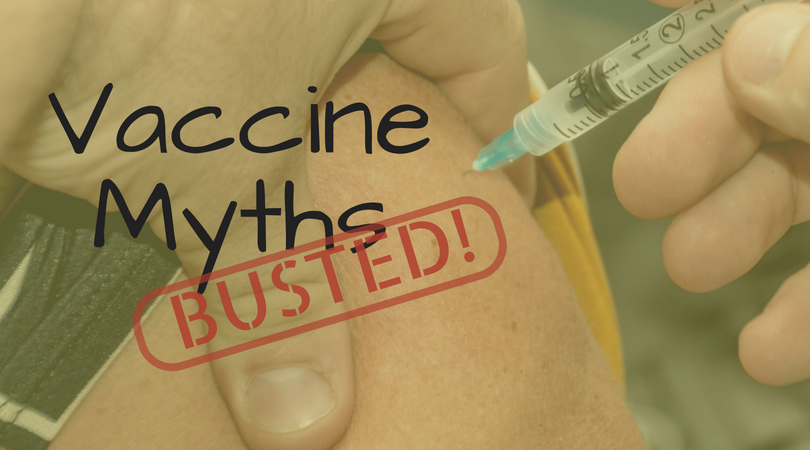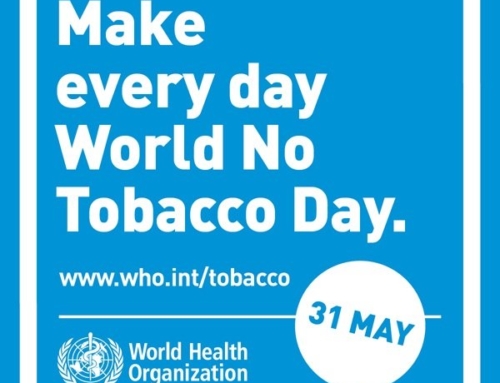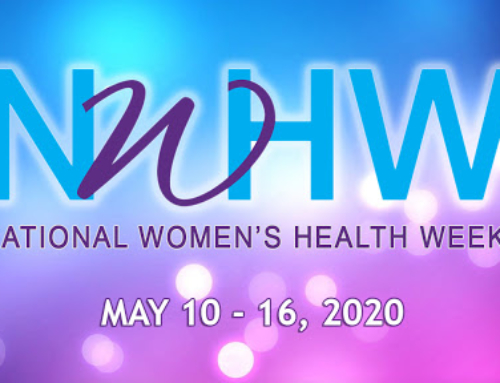August is National Immunization Awareness Month! Immunizations are extremely important. They prevent disease ,reduce hospitalization, on top of many other things . More recently, people are concerned about the safety of immunizations, while others might even question why we still immunize if some of these diseases have been eradicated. With all the media, it can be hard to know what the truth really is. Here are the facts on common vaccine myths.
For starters, vaccines are safe. For a vaccine to get approved, it goes through a very extensive process. A series of stages take place before a vaccine is given to the public. The Centers for Disease Control and Prevention (CDC) does point out that no form of medication is perfect. Vaccines are not 100 percent effective, and there is a small chance someone could have a reaction to a vaccine, but this could very well happen with something simple like aspirin. There are very few cases of anyone having extremely harmful reactions from vaccines. In some of those cases, it’s hard to prove that the vaccines are the sole cause of those reactions.
Why do we still need vaccines if a lot of diseases are eradicated? According to the CDC, smallpox is the only disease that has been completely erased from the world. Polio is on its way to being eradicated as well. In 2015, only 74 cases of polio were reported worldwide. In the United States, we see very low rates of these preventable diseases because of vaccination. This is not the case in some countries. There is a difference between a disease being eradicated and eliminated. Eradicated means a disease is extinct. No preventive measures are needed for eradicated diseases. The definition of elimination is similar, and it is easy to confuse the two. Elimination means the reduction of a disease in a certain geological area(s) due to calculated efforts. Elimination requires continued measures to ensure a disease does not spread.
There have been outbreaks in recent years here in the United States. In 2013, a measles outbreak took place in New York and was the largest outbreak in America since 1996. Fifty-eight cases were identified in two neighborhoods. Researchers are not exactly sure how these diseases are coming back, but they have reports suggesting it could be from people not receiving certain vaccinations, then going on to travel to other countries and spreading the disease upon their return. A lot of diseases can spread rapidly if most of the people in a community are not vaccinated for that specific disease (e.g. measles). That’s why it is important to get the vaccine.
It’s important to remember vaccines are for everyone! They are not exclusive to children. Adults and pregnant women should also stay up to date with their vaccines. Vaccines have great benefits. They help keep yourself and others safe. Some people are unable to receive vaccines for medical reasons, and by getting vaccinated you are protecting those people from contracting diseases. This is where herd immunity comes into play. Herd immunity is when a population is protected from a disease that the majority of that population is immunized against. Some members of that community may not be vaccinated, but won’t contract that disease because the disease cannot spread through the largely vaccinated group. In a community in which most people are vaccinated, the chance of a disease spreading is significantly lower. Vaccines also protect future generations of people. The CDC states that vaccines are cost-effective. More people getting vaccinated means fewer people contracting diseases and fewer hospital visits.
Although August is National Immunization Awareness Month, it is important to spread awareness year-round. If you are a health professional or a student, I encourage you to attend SRAHEC’s free continuing education summit, Boosting HPV Vaccinations in Rural Florida. The event is being held in Starke, FL from 9:30 am-3:30 pm. Participants will learn how to better recommend the vaccine to patients and parents in their practice. They will gain information about the impact of HPV-associated cancers patients and how to report vaccination rates to Florida’s database.
For the general public visit https://www.cdc.gov/vaccines/growing/images/global/CDC-Growing-Up-with-Vaccines.pdf for helpful information about vaccines for all ages and specific information regarding pregnant women getting vaccines.
About the Author: Mariah Edwards

Mariah is an intern at Suwannee River AHEC. She currently finishing her bachelor’s degree in psychology at the University of Florida.
Resources:
https://www.cdc.gov/vaccines/parents/vaccine-decision/index.html
https://www.cdc.gov/flu/news/study-vaccination-hospitalization.htm
https://www.cdc.gov/mmwr/preview/mmwrhtml/su48a7.htm
https://www.cdc.gov/vaccines/parents/vaccine-decision/index.html
https://www.cdc.gov/vaccines/hcp/conversations/downloads/vacsafe-ensuring-color-office.pdf
https://www.cdc.gov/vaccines/basics/test-approve.html
https://www.cdc.gov/vaccines/parents/tools/parents-guide/parents-guide-part4.html
https://www.cdc.gov/polio/updates/
https://www.cdc.gov/vaccines/vac-gen/whatifstop.htm
https://www.cdc.gov/mmwr/preview/mmwrhtml/mm6236a5.htm
https://www.cdc.gov/vaccines/pubs/pinkbook/downloads/appendices/E/reported-cases.pdf
http://www.pbs.org/wgbh/nova/body/herd-immunity.html
https://www.cdc.gov/vaccines/programs/vfc/pubs/methods/index.html
https://www.cdc.gov/vaccines/growing/images/global/CDC-Growing-Up-with-Vaccines.pdf







